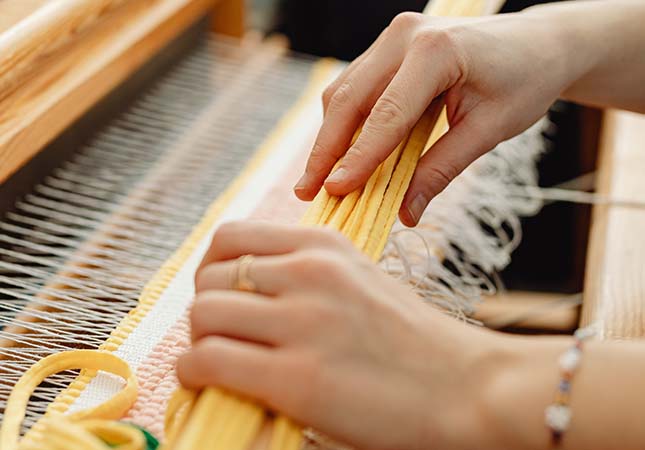In July 2023, the global textile industry experienced an overall improvement in its business situation, despite the prevailing negative conditions, as per the findings of the International Textile Manufacturers' Federation's (ITMF) Global Textile Industry Survey (GTIS), which was conducted during the first half of that month. This positive shift can be attributed to an increasing number of companies successfully adapting to the challenging business environment and now reporting signs of progress.

Upon closer examination, the regional analysis reveals that Asia continues to face the most significant struggles, while South America has managed to recover and regain a positive footing in the industry. Surprisingly, the global business expectations have remained unchanged since March 2023. Interestingly, all regions, with the exception of East Asia, maintain an optimistic outlook for the situation in the next six months.
However, the ITMF notes that certain segments within the industry have experienced a shift in expectations. Specifically, weavers/knitters and dyers/finishers/printers are two areas where expectations have turned negative, as reported in a press release.
Despite the hurdles, the textile industry is demonstrating resilience, with various companies finding ways to navigate through the challenges and seeking improvement in their respective situations. This survey provides valuable insights into the current state of the global textile industry and its potential trajectory in the months to come. As the industry continues to evolve, it will be essential for stakeholders to closely monitor the changes and adapt their strategies accordingly to ensure sustainable growth and success.
Despite a slight increase recorded in July 2023, order intake in the global textile industry remains negative across all regions and segments. While garment, home textile, and technical textile producers have shown some notable improvements, the overall balance remains on the negative side. Notably, the order backlog has reached its lowest level ever recorded in the Global Textile Industry Survey (GTIS), indicating a concerning decline in pending orders.
Interestingly, South America and the technical textiles segment have experienced a slight increase in order backlog, offering a glimmer of hope in an otherwise challenging scenario. However, the survey indicates that companies worldwide are not expecting a substantial improvement in order intake that would significantly boost the backlog.
Another crucial aspect affected by the current industry climate is the capacity utilization rate, which has hit its lowest level since the inception of the survey. Particularly worrying is the steady decline in capacity utilization in Asia and Europe since 2021. Additionally, home textile and technical textile producers have also witnessed a recent drop in capacity utilization, adding to the industry's concerns.
These findings underscore the persistent challenges faced by the global textile industry. While there have been some positive developments in certain regions and segments, the overall business landscape remains daunting. The low order intake and order backlog levels, coupled with the decreasing capacity utilization, necessitate careful strategic planning and adaptive measures for companies in the textile sector.
To remain competitive and resilient, industry stakeholders must closely monitor market trends, consumer demands, and supply chain disruptions. Finding innovative ways to enhance efficiency, minimize waste, and explore new markets may prove crucial in navigating these uncertain times successfully. As the industry continues to evolve, collaboration and proactive approaches will be vital to ensure a sustainable and prosperous future for the global textile sector.
The primary concern gripping the global textile industry is undoubtedly "weakening demand." This issue takes the top spot by a significant margin, reflecting the challenges companies are facing in securing sufficient orders from the market. Following at a distance, the concerns of "inflation" and "higher raw material prices" are also causing apprehension, further exacerbated by the impact of "geopolitics" and "higher energy prices" on the industry's stability.
Despite these overarching concerns, there are some encouraging signs amid the complexities. The costs associated with logistics, energy, and raw materials have witnessed a decline in recent months, offering a glimmer of relief for the industry. Interestingly, "geopolitics" has not seen a surge in its ranking of concerns, indicating that the geopolitical landscape has not escalated to further disrupt the sector.
An encouraging aspect revealed by the survey is the relatively low number of cancelled orders on a global scale. This may be attributed to a significant proportion of companies in the textile supply chain maintaining average or low inventory levels. With such inventory management practices in place, the need for cancellations becomes less relevant and obsolete.
Notably, an impressive 96 percent of garment manufacturers reported average or low inventory levels, showcasing their prudent approach to inventory management. However, it's worth mentioning that spinners, weavers/knitters, and fiber producers have reported the highest inventory levels, suggesting potential areas of focus to optimize inventory efficiency in those segments.
As the textile industry grapples with these challenges and opportunities, it is vital for stakeholders to keep a close eye on demand fluctuations, pricing dynamics, and geopolitical developments. Navigating the uncertainties will require strategic adaptation and agile supply chain management to maintain competitiveness and resilience.
Moreover, proactive collaboration across the industry's value chain can play a pivotal role in finding innovative solutions and mitigating risks. By fostering a shared commitment to sustainable practices and addressing emerging concerns, the global textile industry can build a more stable and prosperous future.
SUNTECH Textile Machinery offers a comprehensive range of products that cater to various fabric types. Our product lineup includes, but is not limited to, pinking machine, loom machine, weaving machine, beam truck, fabric cutting machine, motorized beam trolley, beam storage, and fabric inspection machine. With our innovative approach and extensive experience, SUNTECH Textile Machinery remains at the forefront of the textile industry. We warmly welcome requests for quotes and cooperation opportunities from you!




